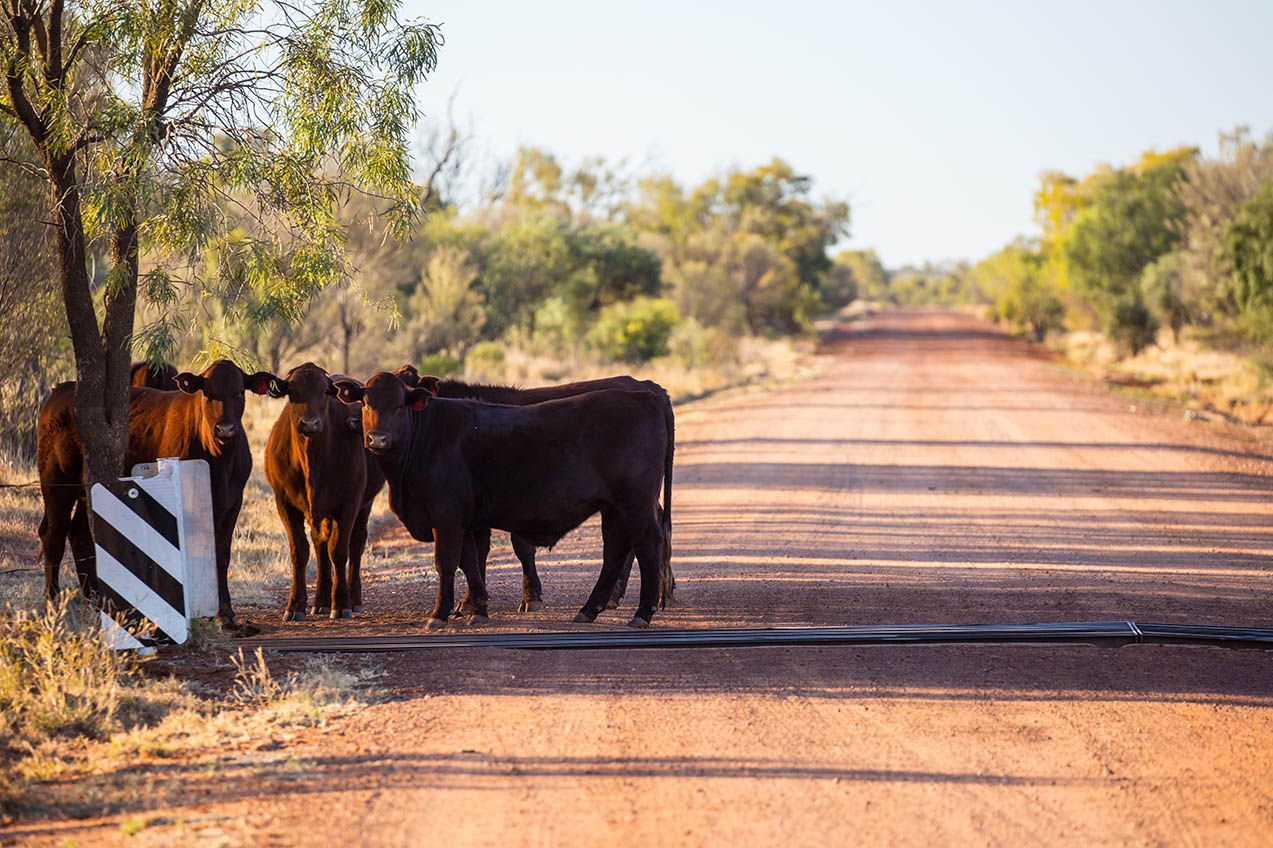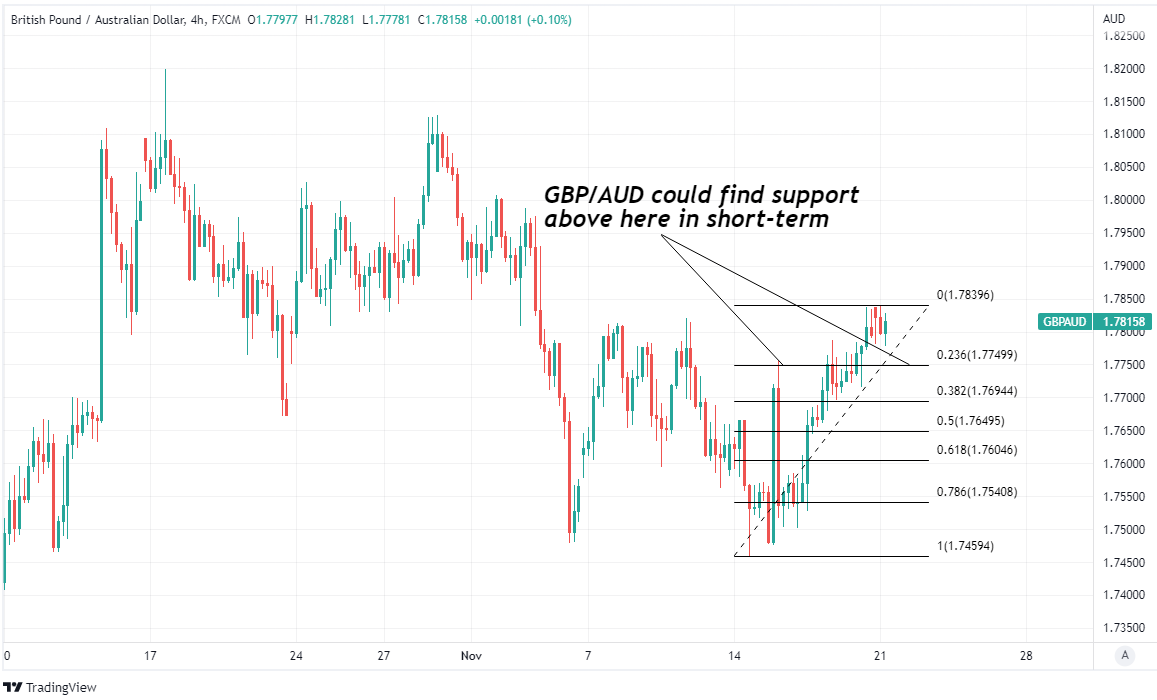GBP/AUD Rate Aided by AUD/USD as Central Bank Risk Eyed
- Written by: James Skinner
-
- GBP/AUD supported around 1.7750 short-term
- China restrictions drive correction in AUD/USD
- Chart resistances stymie GBP/AUD above 1.79
- RBA speech, Fed minutes & BoE chatter eyed

Image © Adobe Images
The Pound to Australian Dollar exchange rate has benefited from a corrective setback in AUD/USD that could keep Sterling buoyant above 1.7750 this week as attention turns to monetary policy commentary from the Reserve Bank of Australia (RBA), Federal Reserve (Fed) and Bank of England (BoE).
Australia's Dollar ceded ground to most of its major currency counterparts to open the new week as the risk of fresh coronavirus-related economic closures in China weighed on asset prices across the Asia Pacific region as well as on currencies of those countries exporting into the world's second largest economy.
"Watch for new restrictions in China’s Guangzhou and Beijing. If more restrictions are announced, AUD/USD will likely decrease materially, possibly below 0.64," says Joseph Capurso, head of international economics at Commonwealth Bank of Australia.
"However, AUD may increase modestly on Wednesday if the RBNZ surprises financial markets with a 75bp increase in the cash rate," Capurso and colleagues write in a Monday look at the week ahead.
Monday's losses extended a week of underperformance for the Australian Dollar and helped GBP/AUD remain on its front foot within the upper half of a November trading range spanning the gap between 1.7459 and 1.8002.

GBP/AUD rose almost one percent and might be likely to benefit further this week if AUD/USD remains under pressure either as a result of developments in China, Tuesday's remarks from RBA Governor Philip Lowe or other factors relating to the U.S. Dollar.
The Pound to Australian Dollar rate always tends to closely reflect the relative performance of Sterling and the Aussie when each is measured against the U.S. Dollar but often tends to demonstrate a negative correlation with AUD/USD.
"I think this is a good place to take a shot at short AUDUSD. You have the 100-hour and 200-hour MAs crossing over and extreme weakness in commodities," says Brent Donnelly, CEO at Spectra Markets and a veteran trader with time spent at hedge funds and banks including Lehman Brothers and HSBC.
"This is consistent with my broader view that we are in a consolidation / chop phase here, not a new USD down regime with looser financial conditions. You can see in the chart that copper is grinding lower, in contrast with AUDUSD," Donnelly writes in Friday''s edition of the AM/FX.
Donnelly sold AUD/USD on Friday in anticipation of a decline to 0.6555 up ahead, which would be a favourable outcome for GBP/AUD if realised.
The Pound to Australian Dollar rate would be likely to remain supported above 1.7750 and may even have scope to edge back above 1.79 if the nascent setback takes AUD/USD back near to the 0.65 handle this week.
Whether it does likely depends on how the market reads RBA Governor Philip Low when he delivers a speech titled "Price Stability, the Supply Side, and Prosperity" at the Annual Committee for Economic Development of Australia Dinner in Melbourne at 07:00 London time on Tuesday.
"The Aussie chopped around 67 cents last week as Fed officials lent the US dollar some support. Australia's strong domestic data had limited impact," says Sean Callow, a senior FX strategist at Westpac in Sydney.
"The outlook for US monetary policy remains vital for AUD/USD. We heard from Fed officials throughout the week, with some variation in their messages, contributing to choppy price action in the 10-year Treasury," Callow writes in a Monday market commentary.
Australia's Dollar has almost overlooked data from the local economy of late including a new record low for unemployment and wage growth surpassing RBA forecasts so it may be the case that this Wednesday's RBNZ decision and minutes from the November Fed meeting will matter more for the Aussie.
"There is widespread agreement about leaving rates at a restrictive terminal rate over a considerable period. However, a divide is opening on the view of terminal," writes Tom Kenny, a senior economist at ANZ, in a Monday briefing.
"On the dovish side, regional Fed Presidents Bostic (Atlanta), Harker (Philadelphia) and Daly (San Francisco) expressed a view of terminal being somewhere between 4.75% and 5.25%. Meanwhile, on the hawkish spectrum, St Louis Fed President Bullard suggested terminal ranged from 5% to 7% using Taylor rules (Figure 1). The minutes to the 1-2 November meeting this week should shed further light on members’ assessment of terminal," he adds.
There is a risk that Wednesday's minutes highlight the Fed's intention to raise interest rates to a top-of-the-class peak for an extended period and one above the roughly 5% level assumed by financial markets, which would make hard work and a risky endeavour out of betting against the U.S. Dollar.
This might in turn amount to a headwind for AUD/USD and a supportive outcome for GBP/AUD though Sterling would run into technical resistances once above 1.79 where a number of weekly moving-averages have stymied repeated attempts to extend the recovery from late September lows.
That's unless one of the many public appearances scheduled for BoE policymakers this week provides reason for greater enthusiasm about the prospects for the Pound.

